Chicago area transit agencies win federal grants to continue to improve, expand system
January 13, 2023
January 13, 2023
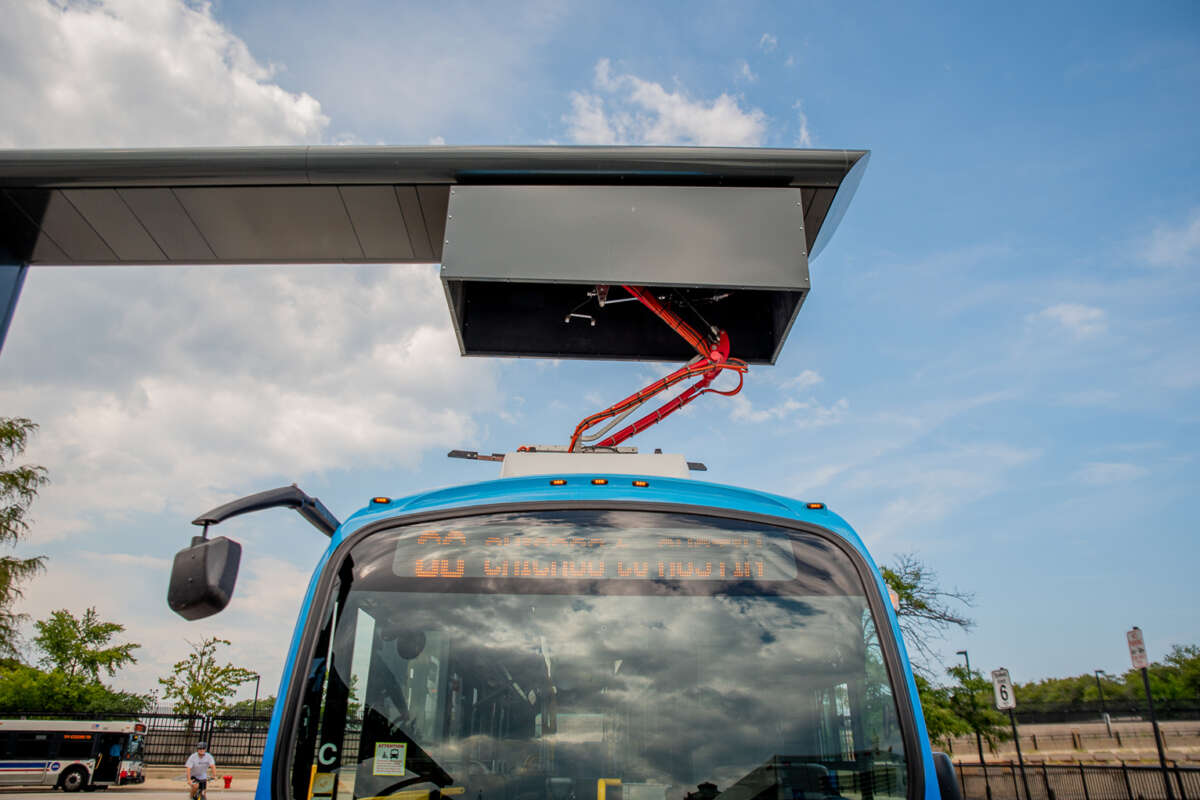
In 2023, Chicago area transit agencies will use millions in newly available federal transit funding to make the system more reliable, sustainable, and accessible to all riders.
At their December meeting, the RTA Board of Directors approved an amendment adding $121.49 million to the region’s 2022-2026 capital program. This is on top of the $4.5 billion already included in the five-year program thanks in large part to the state's ongoing Rebuild Illinois capital bill and the federal government’s Infrastructure Investment and Jobs Act (IIJA).
The new money, added in December, for CTA, Metra, and Pace capital projects is largely the result of successful federal grant applications from each of the agencies with planning assistance and support from RTA. Of the more than $20 billion in transit funding from the IIJA, $9.2 billion of it – 43 percent – is distributed via competitive grant programs to agencies applying from across the country. Winning applications are awarded federal funds that cover up to 80 percent of project costs, with the remaining portion covered by state or local matching funds.
In Year 1 of the IIJA, CTA, Metra, and Pace took advantage of these expanded grant opportunities to advance longstanding goals to improve the system, with hopes for the region to secure even more discretionary funding in future years.
Here are a few of the projects advancing after successful grant applications in 2022. The full regional program can be explored in more detail on RTA’s Capital Projects Dashboard.
Pace, in partnership with Metra and the City of Harvey, was awarded a $20 million Rebuilding American Infrastructure with Sustainability and Equity (RAISE) grant to fund the Harvey Transportation Center reconstruction project. Once complete, the new South Suburban multimodal facility will greatly improve rider comfort, convenience, and safety, eliminating the need for riders to cross four lanes of traffic to transfer between the train and the bus. Harvey is a historically disadvantaged area that meets the standards of the Biden Administration’s Justice40 Initiative, which aims to advance environmental justice in communities across the country through federal grant programs and other activities.
In 2022 the CTA released an ambitious Charging Forward plan to fully electrify its bus fleet by 2040 and immediately got to work securing federal grants to get it done. The CTA won a $28.8 million Low- and No-Emission Bus and Bus Facilities grant to buy 10 electric buses and upgrade the Chicago Avenue bus garage in Humboldt Park, which the plan identified as the first of its facilities to be fully modernized. Humboldt Park is an environmental justice community with poor air quality. The garage serves an area that’s 93 percent minority and 86 percent low-income.
2022 was a banner year for plans to extend the Red Line to historically disadvantaged communities on the Far South Side. In December, Chicago City Council approved a Transit TIF that could raise nearly $1 billion in local funding for the project. These local matching funds are needed to ensure CTA is eligible to apply for federal funding to cover a large portion of the project cost. In 2022, the agency won nearly $2 million in federal grants to aid in design of the project from the Community Project and Areas of Persistent Poverty programs, which were added to the capital program in December.
Also in December, the Federal Transit Administration (FTA) awarded the Chicago region more than $185 million in federal funds to make more of the region’s rail stations fully accessible to people with disabilities. The CTA received $118.5 million to modernize its Irving Park, Belmont, and Pulaski stations and make them fully ADA accessible, while Metra won $66.6 million for accessibility upgrades at 95th Street-Chicago State University and 59th/60th Street stations on the Metra Electric line. Funding came from the All Stations Accessibility Program, a new federal grant program established in the IIJA that funds accessibility improvements for legacy rail systems. The program was championed by Sen. Tammy Duckworth and other members of the Chicago area congressional delegation, who were inspired by CTA’s own All Stations Accessibility Program.
The RTA’s draft Transit is the Answer regional transit strategic plan calls for the region to build upon this recent success and bring more transparency to the capital program. The RTA commits to work with CTA, Metra, Pace, and many others to secure increased funding for transit infrastructure. This includes updating the regional priority project list to ensure legislators and the public are aware of the acute need for sustained capital investment and maintain and improve the system. To improve access for people with disabilities, the agency will develop a regional accessibility plan that provides an inventory of capital projects and supporting infrastructure needed for the regional system to achieve full accessibility. The RTA also plans to introduce a new project evaluation system that will provide information on 12 key themes to better communicate the importance and impact of capital investments. You can read more about the proposed changes to the capital program in the full draft plan.
Subscribe to our Newsletter
Related Articles
 New project management oversight report highlights more than 100 projects representing $8.2 billion in capital investments
New project management oversight report highlights more than 100 projects representing $8.2 billion in capital investments
The RTA’s Project Management Oversight (PMO) program ensures that the Service Boards—CTA, Metra, and Pace—are spending capital funds and managing their infra...
June 27, 2024 Transportation Tuesday recap: Improving and expanding the transit system strategically
Transportation Tuesday recap: Improving and expanding the transit system strategically
With last year’s adoption of Transit is the Answer came 15 new evaluation metrics that comprise a strategy for evaluating and selecting capital projects. Now...
May 30, 2024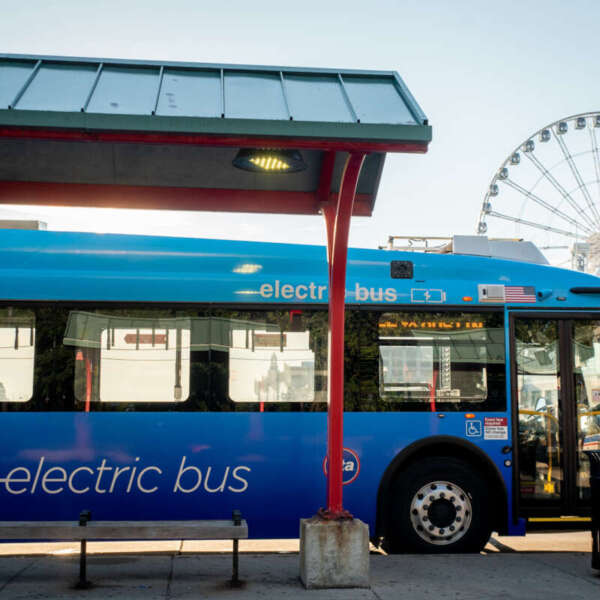 Transit is the answer to meeting Illinois’ climate goals
Transit is the answer to meeting Illinois’ climate goals
As we celebrate Earth Day 2024, the RTA is announcing Transforming Transit —the agency’s commitment to lead the Chicago region’s transit system into the futu...
April 18, 2024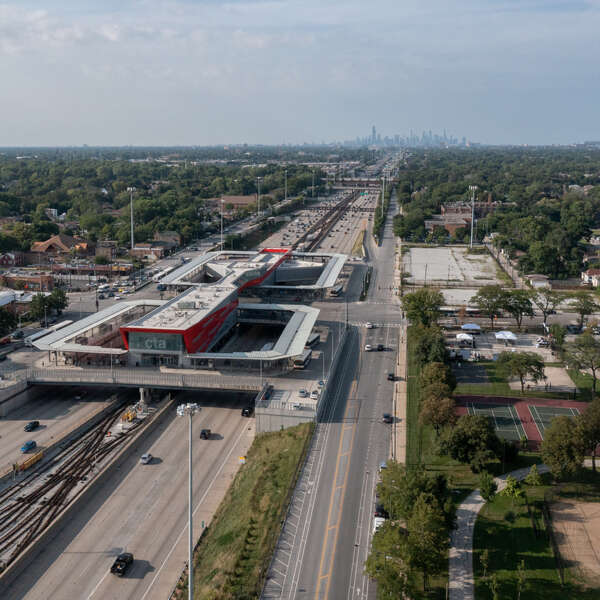 Three years into the Infrastructure Investment and Jobs Act, Chicago’s transit system is winning competitive grants and advancing critical projects
Three years into the Infrastructure Investment and Jobs Act, Chicago’s transit system is winning competitive grants and advancing critical projects
The Infrastructure Investment and Jobs Act (IIJA), passed in 2021, represented a historic level of federal investment for shoring up the nation’s infrastruct...
March 12, 2024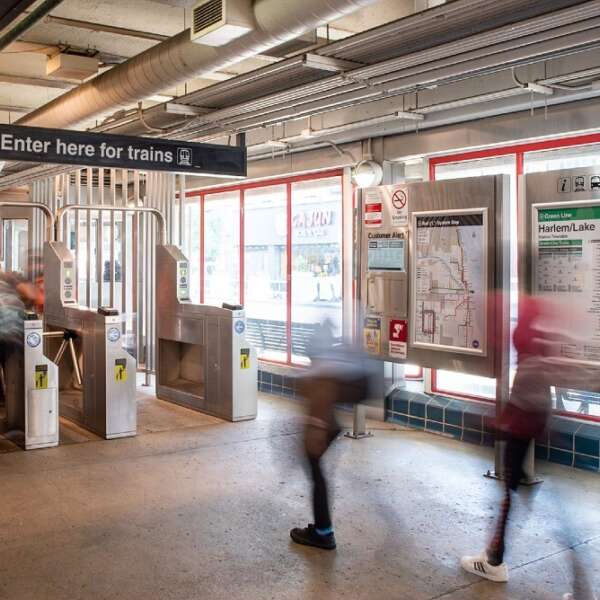 Why fully funding paratransit service and reduced fare programs is key to closing the transit budget gap
Why fully funding paratransit service and reduced fare programs is key to closing the transit budget gap
With transit facing a fiscal cliff in the coming years, fully funding critical programs like ADA paratransit service and free and reduced fare programs is on...
February 29, 2024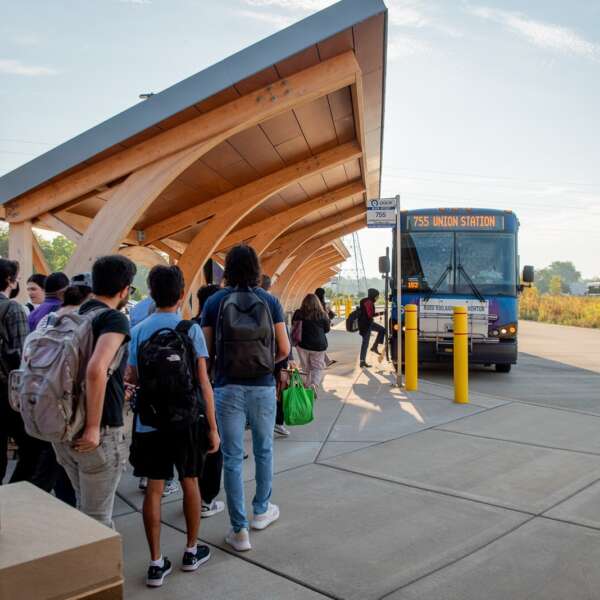 RTA releases semi-annual project management oversight report highlighting more than 100 capital projects
RTA releases semi-annual project management oversight report highlighting more than 100 capital projects
Under its Project Management Oversight (PMO) program, the RTA ensures that the Service Boards—CTA, Metra, and Pace—are spending capital funds and managing th...
January 3, 2024